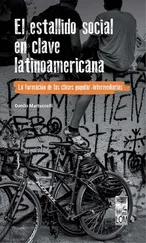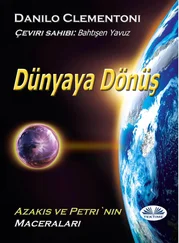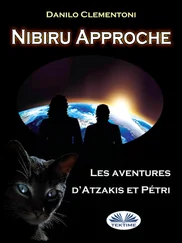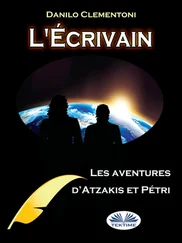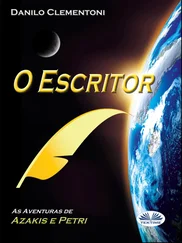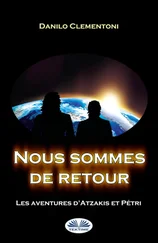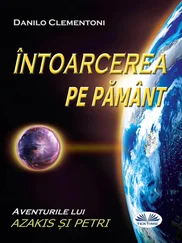Danilo Kiš - Psalm 44
Здесь есть возможность читать онлайн «Danilo Kiš - Psalm 44» весь текст электронной книги совершенно бесплатно (целиком полную версию без сокращений). В некоторых случаях можно слушать аудио, скачать через торрент в формате fb2 и присутствует краткое содержание. Год выпуска: 2012, Издательство: Dalkey Archive Press, Жанр: Современная проза, на английском языке. Описание произведения, (предисловие) а так же отзывы посетителей доступны на портале библиотеки ЛибКат.
- Название:Psalm 44
- Автор:
- Издательство:Dalkey Archive Press
- Жанр:
- Год:2012
- ISBN:нет данных
- Рейтинг книги:4 / 5. Голосов: 1
-
Избранное:Добавить в избранное
- Отзывы:
-
Ваша оценка:
- 80
- 1
- 2
- 3
- 4
- 5
Psalm 44: краткое содержание, описание и аннотация
Предлагаем к чтению аннотацию, описание, краткое содержание или предисловие (зависит от того, что написал сам автор книги «Psalm 44»). Если вы не нашли необходимую информацию о книге — напишите в комментариях, мы постараемся отыскать её.
Psalm 44 — читать онлайн бесплатно полную книгу (весь текст) целиком
Ниже представлен текст книги, разбитый по страницам. Система сохранения места последней прочитанной страницы, позволяет с удобством читать онлайн бесплатно книгу «Psalm 44», без необходимости каждый раз заново искать на чём Вы остановились. Поставьте закладку, и сможете в любой момент перейти на страницу, на которой закончили чтение.
Интервал:
Закладка:
“Jakob,” she said, and that was the first thing that sprouted in her mind, with a weak flash, amid the crimson swirls, growing brighter and brighter, and then it was between her lips. Then those swirls started to expand in concentric circles and in the emerging gap she could make out Jakob’s face, bent over her, and she could feel his hand on her forehead. “Take that away, Jakob,” she said and with the same effort that it took to speak those words she raised her arm and pushed aside the little bottle of ammonia that Jakob was holding beneath her nose. And without turning her head she gathered that the light brightening Jakob’s face was located somewhere to the side, on the floor: Jakob’s placed the lamp with the shade on the floor , she thought all of a sudden, and she remembered everything that had happened and she clasped her arms around Jakob’s neck. He lifted her up and put her on the bed and returned the lamp with the shade to the table by the bed.
“How long was I unconscious?” she asked.
“I don’t know,” he said. “As soon as I locked the door, I raced back to the wardrobe. I realized immediately that something wasn’t right. I reached in my pocket for the key but couldn’t find it. Then I drummed my nails on the door of the cabinet, even though I sensed that something had happened to you. At the same time I recalled hiding the key under my pillow. I grabbed it along with the bottle of ammonia on the table and, wouldn’t you know it, I found you sitting on the floor of the wardrobe with your head tilted over onto your shoulder. . I heard nothing at all when you fell,” he said. . “Poor thing”; and as he caressed her she thought that Jakob must know everything now, because he has to have seen the blood and thus he knows that she is his wife, even if he hadn’t noticed anything earlier; otherwise why would he have said “You poor thing.” And then she said:
“I fell right as he was leaving.” Then, with the concealed pride of being Jakob’s wife: “I couldn’t go on. I couldn’t hold out a single minute longer. Your coat did me in. I don’t know how I can love a man whose coat reeks like this. I will have to find another man .”
Then he said:
“ I don’t know how I can love a woman who passes out so easily. I will have to find another woman ”; his palms lingered gently on her cheeks. In that moment of forgetfulness her thoughts temporarily swung in the opposite direction, with her eyes now immobile and concentrated on that one single point of focus where Jakob was to be found. She (Jakob’s wife) all of a sudden started to expand and evaporate; the red-hot focal point began to cool off as soon as — having long since learned to take slaps like this in stride — her consciousness began to take in her surroundings: the lamp with the shade — Jakob’s room — window blocked with a blanket — and beyond the window: damp gelid night, pierced by spotlights and barbed wire. The concentric circles then started to radiate through the night, into space and time, grazing the dim border between future and past, and when she quickly and fearfully and forcefully halted the waves being emitted by her mind and when they returned from the obscure and distant stretches of the night to Jakob’s room, to the two of them, all she found was a black, singed hole in her mind, there where, a short time before, there had been the hot focal point of the lamp with the apple-blossom lampshade; now in that place was that unhinged voice once again, a voice that sometimes ended sentences in a falsetto and which was known as “Dr. Nietzsche”. .
“I don’t get it,” she said. “I don’t understand what that guy wanted from you.”
“Covering his retreat,” Jakob told her. “What else would he be trying to do: protecting his escape route . Understand?”
“Not really,” she said. “It still isn’t completely clear in my mind. . Is he not able to do all of that himself? Isn’t there anyone else he could order around, anyone else he trusts more? It doesn’t quite make sense. . Tell me, Jakob: Is this really it ?”
Jakob reflected for a moment.
“Judging by all this — yes,” he said. “By this comedy. .” (Then he told her the real meaning of Nietzsche’s visit; it gave her a modicum of hope, and in the quantity necessary for fear not to take the day.)
She remembered: Jakob had told her then: Yes, judging by all this , and although there was doubt in his voice (at least it seemed that way to her), she nonetheless sensed a flash of hope in him and she sensed too that what was in his voice was only bitterness and not despair; and hope too of course. And more. Just now was the first time that Jakob had added, definitively if a little bit mistrustfully, “Judging by all this.” But he did not say: “Hope is a necessity. Thus we have to imagine it,” nor that other thing he added at the beginning: “Otherwise you won’t be able to hold out for one day in this camp. Without hope it would be as if a person were to break ranks and announce to everyone, to their faces, that they were doomed. Each and every one. Things couldn’t go on like that for even a single day. You have to live. Only the person without hope is a real corpse. Do you understand? That’s why you can’t abandon hope. Even if it flees, finding no room in your heart. . Lure it back. Thaw it out. Revive it with artificial resuscitation, by trick-ery, or even by force. .” But that had been right at the beginning, a day or two after they’d first met; she remembered: at that time she didn’t completely believe him; and alongside all the sincerity that resonated in his words, still it seemed to her that he said what he said out of self-confidence or out of cowardice and those both struck her as being pointless at that moment. Maybe he’s just some devious collaborator, or just a frightened one. Back then she hadn’t known him as well as she would. She’d only seen him one time before that. When she was arriving at the camp. Therefore she had said to him that second time, before she got to know him and while she still doubted him:
“Do you think, Doctor, that I can bother with something like hope here and now, in Auschwitz?” And she amazed herself with the trust in him that her voice then betrayed: “That at this very moment I can tap into the reserve of hope people carry in their hearts?”
“I don’t doubt it,” he said. “You’ve certainly suffered a great deal up to this point. But have you really lost hope?” She had no answer for him, despite the trust she’d begun to feel for him; she truly didn’t know how to respond, for who knows what’s going on in this game with no rules, “I hope/I have no hope,” like “I will/I won’t” or “He loves me/He loves me not,” because it was somehow always like this, both in the train car when they were being deported and on the way to the camp and earlier as well, on the Danube: she accepted it, and to her it seemed like she was reconciling herself to all that was coming her way, but later she realized that she had actually not acquiesced completely and that she hadn’t ever abandoned altogether a certain madness that could be called hope (perhaps not even then, at the Danube; but she was in no position now to be certain of that); thus she wanted to say to him that maybe none of it had anything to do with hope, for she had managed to stay alive that time by the Danube, back when it all started (it was three or four years ago), and instead maybe it was all nothing more than an absurd game without rules, a game in which it was impossible to stake anything, even hope, and she wanted to tell him the story of what happened back then by the Danube as she waited at the green peeling fence much as she used to stand in line for a shower during a summer heat wave; but she remembered that she hadn’t abandoned that insanity, which could also be called hope, she hadn’t abandoned it even then all the way up to the point at which she lost consciousness; but her eyes would shut — even then (leaving between her eyelashes a narrow razor-like blade that cut through in an instant the reddish darkness that had fallen over her mind, thereby slicing through the gloom and leaving in her mind a fissure opening into the future) — even then with the hope (or whatever it’s called) that she would awaken and start to see again: to live. Despite the facts. Despite everything. — But she still hadn’t told him everything, because she sensed at the moment she was speaking with this man in his white coat, whose name she still didn’t know, that even now she was unearthing in herself a glow that could not be and is not called hope, although the source of this feeling lay not in her heart but rather outside of her, pushing into her consciousness and her heart like an unexpected heat wave: from his voice and in his eyes. And she thought: Hope isn’t in my heart, in my hands. All my hope lies in your words. In the Doctor’s eyes . But maybe she would already have thought: in your eyes . For this was an intimate feeling for which one needed no social distance. — But then of course she didn’t say it that way; she just shrugged her shoulders:
Читать дальшеИнтервал:
Закладка:
Похожие книги на «Psalm 44»
Представляем Вашему вниманию похожие книги на «Psalm 44» списком для выбора. Мы отобрали схожую по названию и смыслу литературу в надежде предоставить читателям больше вариантов отыскать новые, интересные, ещё непрочитанные произведения.
Обсуждение, отзывы о книге «Psalm 44» и просто собственные мнения читателей. Оставьте ваши комментарии, напишите, что Вы думаете о произведении, его смысле или главных героях. Укажите что конкретно понравилось, а что нет, и почему Вы так считаете.


